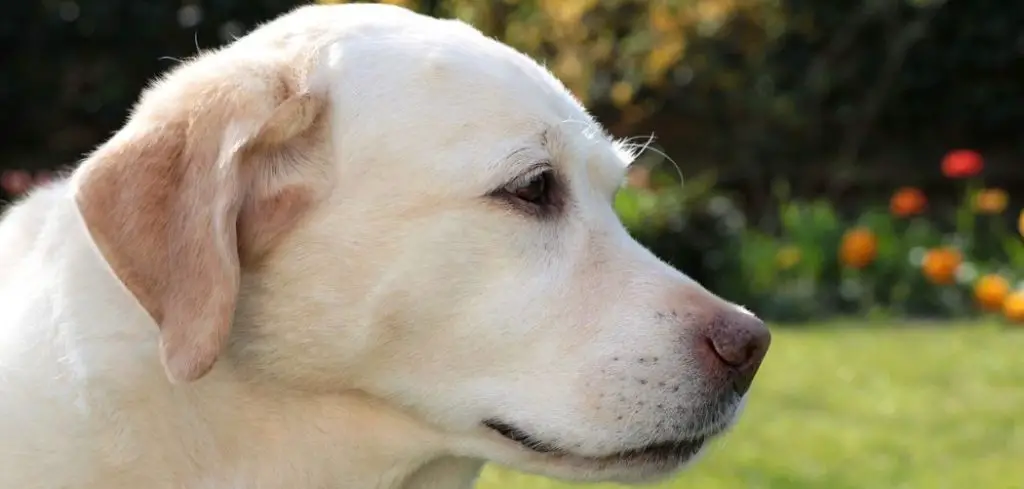If your dog is suddenly drinking and eating more than usual, it might seem like a boost in appetite and hydration—but it can also be a red flag. Increased water and food intake, especially when combined, can signal hormonal or metabolic imbalances.
We outline the common causes of dog drinking a lot of water and eating a lot, what you can do at home, and when to seek veterinary help.
Dog Drinking a Lot of Water and Eating a Lot — Why It Happens
Increased thirst and appetite often stem from conditions like diabetes, Cushing’s disease, medication side effects, or behavioral changes. While some dogs naturally have hearty appetites, a sudden or excessive change in both drinking and eating habits is worth investigating.

Common Causes of Dog Drinking a Lot of Water and Eating a Lot
Diabetes Mellitus
Diabetes is one of the most common causes of excessive thirst (polydipsia) and hunger (polyphagia) in dogs.
The body can’t properly process glucose, leaving cells starved for energy. Your dog will try to compensate by eating more—while excess sugar is flushed out in urine, triggering increased thirst.
Other signs include frequent urination, weight loss despite eating more, and lethargy. Diagnosis is made via blood and urine tests and is managed with insulin and dietary adjustments.
Cushing’s Disease (Hyperadrenocorticism)
Cushing’s disease occurs when the adrenal glands produce too much cortisol, affecting appetite, thirst, metabolism, and behavior.
Affected dogs often eat and drink excessively, urinate more often, pant, and develop a pot-bellied appearance with thin skin.
It typically affects middle-aged to senior dogs. Diagnosis involves blood and hormone tests, and long-term treatment is usually necessary.
Related: Dog drinking a lot of water and not eating (Here’s why)
Medication Side Effects
Corticosteroids like prednisone are commonly prescribed to treat inflammation, immune conditions, or allergies.
One of their most common side effects is an increase in both thirst and appetite.
If your dog began eating and drinking more after starting a medication, speak with your vet about adjusting the dosage or switching drugs.
Never discontinue medications on your own.
Thyroid Disorders (Hyperthyroidism)
Though rare in dogs, hyperthyroidism can cause increased hunger and thirst.
It accelerates metabolism, leading to increased appetite, weight loss, hyperactivity, and sometimes vomiting or diarrhea.
A simple blood test can evaluate thyroid hormone levels. Treatment may involve medication, diet changes, or surgery, depending on the cause.
Behavioral or Environmental Changes
Some dogs may eat and drink more out of boredom, stress, or as a response to competition in multi-pet households.
Changes like a new routine, moving homes, or the presence of another pet can cause shifts in behavior.
While not medical, it’s still important to address—overeating and overdrinking can strain kidneys and digestion over time.
Read more: Dog Drinking a Lot of Water and Peeing a Lot (What’s going on?)
Poor-Quality Diet or Nutritional Deficiency
Dogs fed poor-quality food may consume more to meet nutritional needs, especially if the food is low in digestible protein or essential fats.
Increased thirst may accompany extra kibble if the food is high in salt or if dehydration sets in due to poor nutrient absorption.
Switching to a vet-recommended, balanced diet can regulate hunger and hydration naturally.
What to Do If Your Dog Is Drinking and Eating a Lot
Track how much your dog is eating and drinking daily—sudden increases may signal more than just hunger or thirst.
Avoid overfeeding just because your dog seems hungrier. Stick to measured meals and avoid free feeding.
Offer clean water at all times but note if your dog starts gulping large amounts in one sitting or drinking multiple times an hour.
Check for other signs: weight loss or gain, lethargy, restlessness, vomiting, or changes in urination frequency.
Don’t assume the change is just behavioral—schedule a veterinary exam to rule out deeper causes.
When to Call or Visit Your Vet
Schedule an appointment if your dog:
Shows sudden or excessive increase in both food and water intake
Starts urinating more frequently or having accidents
Is losing or gaining weight unexpectedly
Becomes restless, lethargic, or develops skin/fur changes
Has started a new medication or dietary plan recently
Your vet may recommend bloodwork, urinalysis, hormone tests, or dietary evaluations to uncover the cause.
Read more: Dog Drinking a Lot of Water and Gaining Weight (What it means)
Key Takeaway
A dog that drinks and eats more than usual may be signaling an internal imbalance like diabetes, Cushing’s disease, or a reaction to medication.
Don’t dismiss it as a quirk—document the pattern, look for additional signs, and work with your vet to get your dog back to a healthy, balanced state.
